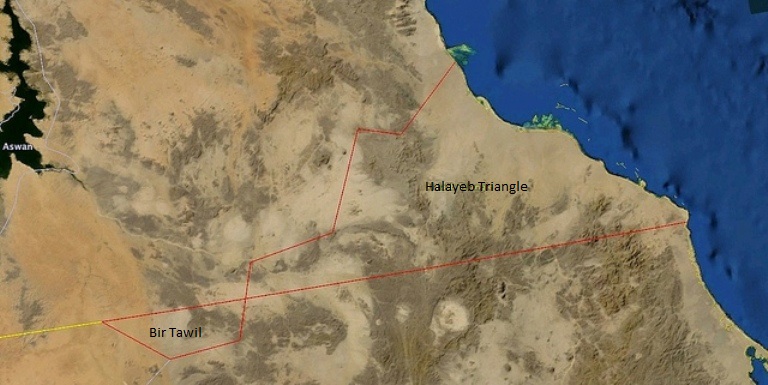Sudan cannot resort to maritime arbitration over Halayed dispute: expert

May 6, 2017 (KHARTOUM) – A Sudanese expert on international law and border disputes Saturday has strongly contested Sudan’s ability to take Egypt to International Tribunal for the Law of the Sea (ITLOS) over the disputed Halayeb area.
An international maritime border arbitrator, Osman Mohamed al-Sharif, disclosed that Sudan was planning to take Egypt to a binding arbitration before the ITLOS over the disputed Halayeb area, adding that Khartoum’s recently lodged objection with the United Nations against Cairo’s annexation of the region to its maritime border.
However in an interview with Sudan Tribune on Saturday, an international law expert, Faisal Abdel Rahman Ali Taha said that the courts established under the UN Convention on the Law of the Sea do not have any jurisdiction over the maritime area of Halayeb as long as the land dispute over the triangle has not yet been settled.
Taha stressed, however, that the arbitral tribunal, which might be constituted under annexe VII to the Convention on the Law of the Sea, “would not consider a dispute concerning the Halayeb maritime area because that would necessarily entail consideration of the sovereignty dispute over the Halaib land. This matter is not about the application or interpretation of the United Nations Convention on the Law of the Sea But governed by other rules of international law.”
“Maritime rights derive from the coastal state’s sovereignty over the land because the land dominates the sea,” he stressed.
The Halayeb triangle, which is a 20,580 km area on the Red Sea, has been a contentious issue between Egypt and Sudan since 1958, shortly after Sudan gained its independence from the British-Egyptian rule in January 1956.
The area has been under Cairo’s full military control since the mid-1990’s following a Sudanese-backed attempt to kill the former Egyptian President Mohamed Hosni Mubarak.
Egypt has used to reject Sudan’s repeated calls for referring the dispute to international arbitration. The international law provides that the agreement of the two parties is needed to arbitrate a dispute by the tribunal.
STRAIGHT BASELINE
Moreover, Taha refused Sharif’s statement that Sudan’s filing of the straight baseline was a measure intended to create a third route after a refusal of the direct negotiations and the international arbitration.
Sudanese President Omar al-Bashir issued a decree on March 2 on the straight baselines from which the sea areas of the Republic of Sudan are measured, opposing the Cairo Declaration, which touches the Sudanese maritime border north of Line 22 and lists it as maritime coordinates of Egypt.
Al-Sharif said that Khartoum’s move to deposit with the UN coordinates of the baselines from which its maritime areas are measured after 27 years since former President Hosni Mubarak lodged the maritime borders of Egypt doesn’t strip Sudan of its sovereignty over Halayeb and the equivalent Red Sea waters.
But Taha stressed that the role of the UN Secretariat has no authority “to refer the dispute on the straight baselines to the arbitration or to force the concerned States to do so”.
“The Secretary-General of the United Nations is the depositary of the Convention on the Law of the Sea under article 319. As to what he said that the (UN chief) is the guarantor of the Convention, there is no such a provision in the Convention about that.”
Al-Sharif claimed that the UN Secretary General as guarantor to the UN Convention on the Law of the Sea can end the fait accompli which was established by Egypt in Halayeb in 1995, saying the maritime borders of the Sudan in Halayeb are fixed and complementary to the land border.
(ST)
